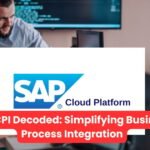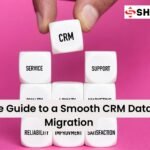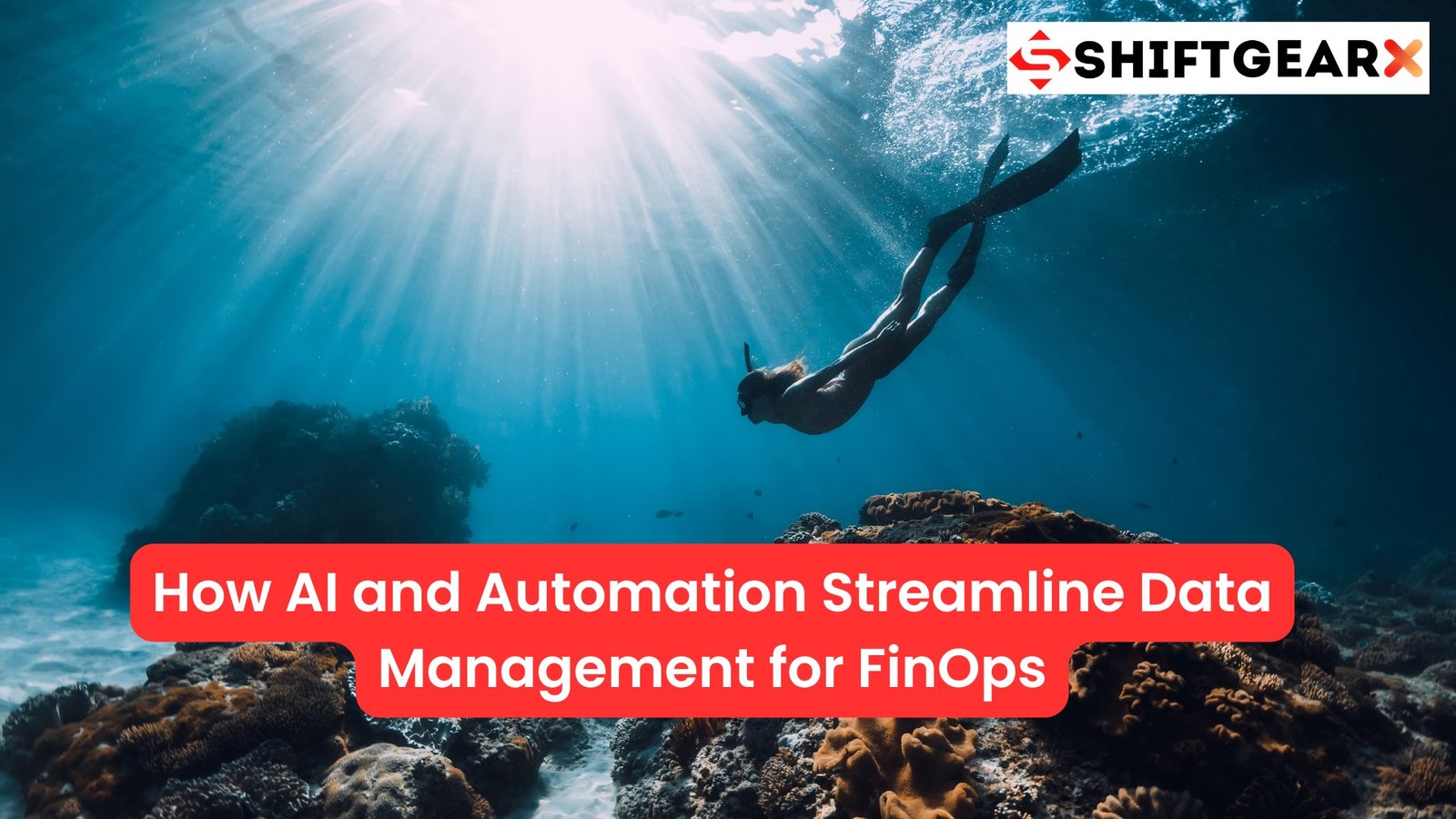What is Software ERP SAP?
Software ERP SAP, or Enterprise Resource Planning by SAP, is a comprehensive software suite designed to manage and integrate the core business processes of an organization. SAP ERP consolidates essential functions such as finance, manufacturing, human resources, and procurement into a unified system. This integration streamlines operations and enhances adaptability through intelligent technologies, ensuring businesses of all sizes can innovate and evolve efficiently.

Brief History and Evolution of SAP ERP
The history of SAP ERP dates back to the 1970s when SAP (Systems, Applications, and Products in Data Processing) was founded in Germany. Initially, SAP developed software solutions for financial accounting and inventory management. Over the decades, SAP ERP has evolved significantly, incorporating advanced technologies like cloud computing, artificial intelligence (AI), and machine learning. These innovations have transformed SAP ERP into a powerful tool for digital transformation, enabling businesses to operate more efficiently and adapt to the dynamic digital landscape.
The Importance of Software ERP SAP in Modern Business
Key Features of SAP ERP
SAP ERP offers a wide array of features that cater to the diverse needs of modern businesses. Some of the key features include:
- Financial Management: Comprehensive tools for managing financial transactions, budgeting, and financial reporting.
- Human Capital Management: Solutions for employee lifecycle management, payroll, and talent management.
- Sales and Distribution: Tools for order management, billing, and sales performance management.
- Materials Management: Inventory management, procurement, and logistics.
- Production Planning: Tools for production scheduling, quality control, and manufacturing processes.
How Software ERP SAP Transforms Business Operations
Software ERP SAP transforms business operations by providing a centralized platform for managing all core business processes. This centralization enhances data visibility, improves decision-making, and streamlines workflows. By automating routine tasks and integrating various functions, SAP ERP reduces operational costs and increases efficiency. Additionally, the advanced analytics and reporting capabilities of SAP ERP enable businesses to gain actionable insights and make informed strategic decisions.

Core Modules of Software ERP SAP
Financial Accounting
The Financial Accounting module in SAP ERP handles all financial transactions and accounting processes. It includes functionalities for general ledger, accounts payable, accounts receivable, asset accounting, and financial reporting. This module ensures accurate financial data and compliance with regulatory requirements.
Human Resources
The Human Resources module manages employee information, payroll, benefits, and talent management. It supports the entire employee lifecycle, from recruitment to retirement, and helps organizations optimize their workforce management.
Sales and Distribution
The Sales and Distribution module covers the entire sales process, from order placement to delivery and invoicing. It includes tools for managing customer orders, contracts, pricing, and sales performance.
Materials Management
The Materials Management module handles procurement, inventory management, and logistics. It ensures efficient supply chain management and helps organizations maintain optimal inventory levels.
Production Planning
The Production Planning module supports manufacturing processes, including production scheduling, quality control, and capacity planning. It helps organizations optimize their production operations and ensure timely delivery of products.

Benefits of Implementing Software ERP SAP
Streamlined Business Processes
Implementing SAP ERP streamlines business processes by integrating various functions into a single system. This integration eliminates data silos, reduces redundancy, and ensures seamless information flow across the organization. As a result, businesses can operate more efficiently and respond quickly to changing market conditions.
Enhanced Data Visibility and Analytics
SAP ERP provides real-time data visibility and advanced analytics capabilities. This enables businesses to monitor key performance indicators (KPIs), track progress, and identify areas for improvement. With access to accurate and up-to-date information, decision-makers can make informed choices and drive business growth.
Improved Decision-Making
The comprehensive reporting and analytics tools in SAP ERP support data-driven decision-making. By providing insights into various aspects of the business, SAP ERP helps leaders make strategic decisions that align with organizational goals. This leads to better resource allocation, improved operational efficiency, and enhanced competitiveness.
Scalability and Flexibility
SAP ERP is designed to be scalable and flexible, allowing it to grow with the business. Whether a company is expanding its operations or entering new markets, SAP ERP can adapt to changing needs. The modular structure of SAP ERP enables organizations to implement only the modules they need and add more as their requirements evolve.
Challenges and Considerations in Software ERP SAP Implementation
Cost Considerations
Implementing SAP ERP can be a significant investment, both in terms of time and money. Organizations need to consider the costs of software licenses, hardware, implementation services, and ongoing maintenance. However, the long-term benefits of SAP ERP, such as increased efficiency and improved decision-making, often outweigh the initial costs.
Change Management
Successful implementation of SAP ERP requires effective change management. Employees need to be trained on the new system, and processes may need to be re-engineered to align with the ERP functionalities. Resistance to change can be a major hurdle, so it is essential to communicate the benefits of SAP ERP and involve employees in the implementation process.
Customization vs. Standardization
One of the key decisions in SAP ERP implementation is whether to customize the system to fit existing processes or standardize processes to fit the system. Customization can increase implementation time and costs, while standardization may require changes to established workflows. Organizations need to strike a balance between customization and standardization to achieve the desired outcomes.

The Future of Software ERP SAP
Cloud-Based SAP ERP Solutions
The future of SAP ERP lies in cloud-based solutions. Cloud ERP offers several advantages, including lower upfront costs, faster deployment, and scalability. SAP’s cloud ERP solutions, such as SAP S/4HANA Cloud, provide businesses with the flexibility to access their ERP system from anywhere and scale their operations as needed. Cloud ERP also ensures continuous updates and innovation, keeping businesses at the forefront of technology.
Integration with Emerging Technologies
SAP ERP is continuously evolving to integrate with emerging technologies like AI, IoT, and blockchain. These technologies enhance the capabilities of SAP ERP, enabling businesses to automate complex processes, gain deeper insights, and improve operational efficiency. For example, AI-powered analytics can provide predictive insights, while IoT integration can enable real-time monitoring of assets and supply chains.
Case Studies: Successful Software ERP SAP Implementations
Case Study 1: Large Enterprise
A global manufacturing company implemented SAP ERP to streamline its operations across multiple locations. The company faced challenges with data silos and inefficient processes. By implementing SAP ERP, the company achieved centralized data management, improved production planning, and enhanced supply chain visibility. The result was increased operational efficiency and reduced costs.
Implementation Process
The implementation process involved several phases:
- Planning and Preparation: The company conducted a thorough analysis of its existing processes and identified areas for improvement. A project team was formed, and a detailed implementation plan was developed.
- System Configuration: The SAP ERP system was configured to meet the specific needs of the company. Customizations were made to align the system with existing workflows.
- Data Migration: Data from legacy systems was migrated to the new SAP ERP system. This involved data cleansing and validation to ensure accuracy.
- Training and Change Management: Employees were trained on the new system, and change management strategies were implemented to address resistance and ensure a smooth transition.
- Go-Live and Support: The system went live, and the project team provided ongoing support to address any issues and ensure successful adoption.
Case Study 2: Mid-Sized Company
A mid-sized retail company adopted SAP ERP to support its growth and expansion. The company needed a scalable solution to manage its inventory, sales, and financial processes. SAP ERP provided the company with real-time data visibility, automated workflows, and advanced analytics. This enabled the company to make data-driven decisions, optimize inventory levels, and improve customer service.
Implementation Process
The implementation process for the mid-sized company included the following steps:
- Needs Assessment: The company conducted a needs assessment to identify the specific requirements for the ERP system. This included input from various departments to ensure all needs were addressed.
- Vendor Selection: After evaluating several ERP vendors, the company selected SAP ERP due to its comprehensive features and scalability.
- System Configuration: The SAP ERP system was configured to meet the unique needs of the retail industry. This included setting up modules for inventory management, sales, and financial accounting.
- Data Migration: Data from the existing systems was migrated to SAP ERP. This involved mapping data fields and ensuring data integrity.
- Training and Support: Employees received training on the new system, and ongoing support was provided to address any issues and ensure successful adoption.

The Role of Software ERP SAP in Digital Transformation
Software ERP SAP plays a crucial role in digital transformation by providing a comprehensive platform for managing and integrating core business processes. With its advanced features, scalability, and flexibility, SAP ERP enables businesses to streamline operations, enhance data visibility, and make informed decisions. As organizations continue to embrace digital transformation, SAP ERP will remain a key enabler of business success and innovation.
Table: Key Statistics of Software ERP SAP
| Statistic | Value |
|---|---|
| Global ERP market size (2024) | $78.40 billion |
| SAP’s market share | Approximately 24% |
| Number of SAP ERP customers | Over 440,000 |
| Average implementation time | 6-12 months |
| Typical ROI timeframe | 2-3 years |
By understanding the importance and benefits of Software ERP SAP, businesses can leverage this powerful tool to drive growth, efficiency, and innovation. Whether a large enterprise or a mid-sized company, SAP ERP offers the capabilities needed to succeed in today’s competitive business environment.
The Future of Software ERP SAP
Cloud-Based SAP ERP Solutions
The future of SAP ERP lies in cloud-based solutions. Cloud ERP offers several advantages, including lower upfront costs, faster deployment, and scalability. SAP’s cloud ERP solutions, such as SAP S/4HANA Cloud, provide businesses with the flexibility to access their ERP system from anywhere and scale their operations as needed. Cloud ERP also ensures continuous updates and innovation, keeping businesses at the forefront of technology.
Integration with Emerging Technologies
SAP ERP is continuously evolving to integrate with emerging technologies like AI, IoT, and blockchain. These technologies enhance the capabilities of SAP ERP, enabling businesses to automate complex processes, gain deeper insights, and improve operational efficiency. For example, AI-powered analytics can provide predictive insights, while IoT integration can enable real-time monitoring of assets and supply chains.
Enhanced User Experience
SAP is focusing on enhancing the user experience by making its ERP solutions more intuitive and user-friendly. The introduction of SAP Fiori, a user experience (UX) design system, has revolutionized the way users interact with SAP ERP. SAP Fiori provides a consistent and responsive design across all devices, making it easier for users to navigate and perform tasks efficiently.
Additional Considerations for Software ERP SAP Implementation
Data Security and Compliance
Data security and compliance are critical considerations in SAP ERP implementation. Organizations must ensure that their ERP system complies with industry regulations and standards, such as GDPR, HIPAA, and SOX. SAP ERP provides security features, including role-based access control, encryption, and audit trails, to protect sensitive data and ensure compliance.
Integration with Existing Systems
Integrating SAP ERP with existing systems is essential for seamless data flow and efficient operations. Organizations need to assess their current IT landscape and identify systems that need to be integrated with SAP ERP. SAP provides integration tools, such as SAP Cloud Platform Integration and API Management, to facilitate integration with third-party applications and legacy systems.
Continuous Improvement and Optimization
Implementing SAP ERP is not a one-time project but an ongoing process of continuous improvement and optimization. Organizations should regularly review their ERP system, identify areas for improvement, and implement enhancements to maximize the benefits of SAP ERP. This includes staying updated with the latest SAP releases, adopting new features, and leveraging advanced analytics to drive business performance.
Conclusion: Embracing the Future with Software ERP SAP
In conclusion, Software ERP SAP is a powerful tool that enables businesses to manage and integrate their core processes, drive efficiency, and support digital transformation. By leveraging the advanced features and capabilities of SAP ERP, organizations can streamline operations, enhance data visibility, and make informed decisions.
Table: Comparison of On-Premise vs. Cloud-Based SAP ERP
| Feature | On-Premise SAP ERP | Cloud-Based SAP ERP |
|---|---|---|
| Deployment | On-site servers | Cloud infrastructure |
| Upfront Costs | High | Lower |
| Maintenance | Managed by organization | Managed by SAP |
| Scalability | Limited by hardware capacity | Highly scalable |
| Accessibility | Limited to on-site access | Accessible from anywhere |
| Updates and Upgrades | Manual | Automatic |
| Customization | High | Limited |
| Security | Managed by organization | Managed by SAP |
| Implementation Time | Longer | Shorter |
By understanding the differences between on-premise and cloud-based SAP ERP, businesses can make informed decisions about the best deployment model for their needs. Both options offer unique advantages, and the choice depends on factors such as budget, scalability requirements, and IT infrastructure.

Final Thoughts
As businesses navigate this digital age, Software ERP SAP stands out as a vital tool for achieving operational excellence and driving growth. With its comprehensive features, scalability, and integration capabilities, SAP ERP empowers organizations to streamline processes, enhance data visibility, and make strategic decisions. By embracing SAP ERP, businesses can position themselves for success in an ever-evolving market landscape.
Whether you are a large enterprise, a mid-sized company, or a small business, SAP ERP offers the flexibility and functionality needed to meet your unique requirements. As technology continues to advance, SAP ERP will remain at the forefront of innovation, helping businesses stay competitive.
In summary, Software ERP SAP is more than just a software solution; it is a catalyst for digital transformation and a key enabler of business success. By leveraging the power of SAP ERP, organizations can unlock new opportunities, drive efficiency, and achieve sustainable growth.
Don’t forget to subscribe to Shift Gear X for more articles. Need expert advice or consulting? Be sure to visit Shift Gear.
Check this also – Uncovering the Complexities of ERP Requirements Management – Tech News Before It’s News | Shift GearX
You will also love – Moving SAP Transport Request to Different Server: A Step-by-Step Guide – Tech News Before It’s News | Shift GearX









